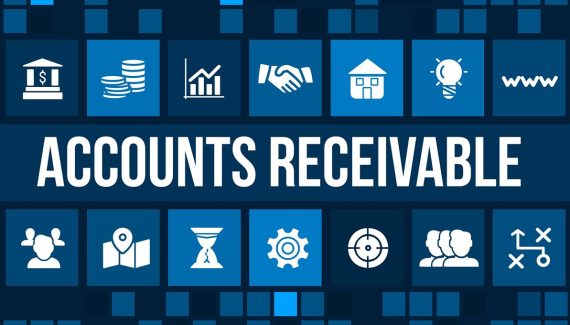Many people borrow money or take a loan from banks and other financial institutions during rough times. And one of the requirements they check is the borrower’s credit score. A good credit score makes borrowing or loan application much easier than a bad credit score.
If you’re struggling to maintain a good credit score, debunking credit check myths would be a great start. Also, you’ll understand in this article the importance and strategies of attaining a good credit standing to help improve your finances.

Contents
What is a Good Credit Score?
A credit score measures a consumer’s creditworthiness as represented by a number from 300 to 850. What’s a good credit score? Banks and lending agencies have their own credit rating standards, but the scoring is closely similar.
Credit scores ranging from 580 to 669 are fair and 670 to 739 are good. You have a very good credit standing if you have a 740 to 799 score. Excellent credit is scored at 800 and above.
Importance of Maintaining a Good Credit Score
If there’s a ‘financial badge’ or ‘financial grade’ that lenders search for from loan applicants, that’s credit rating. The higher a borrower’s credit score is, the better their financial reputation is to potential lenders because it shows how well they manage paying their debts.
On the other hand, the lower a borrower’s credit score is, the more the lender faces risks in borrowing money. Hence, the lender applies a higher interest rate in approving a borrower with a poor credit score or worse, resulting in the rejection of the loan application.
So, it’s important to attain and maintain a good credit score to:
Obtain the Best Terms:
If you want to have the best loan terms, strive to maintain a credit score of 800 or above. Or at least maintain a decent credit score of not less than 670. Most lenders consider a credit score of 600 as below average.
If your credit score falls to 600 or lower, getting a new loan approved at an affordable interest rate is difficult. Banks and lending companies usually offer these borrowers high-interest loans with strict terms to compensate for the high risk.
Get Higher Credit Limits:
Because your credit score demonstrates your creditworthiness, banks and lending companies are more willing to invest in you by giving you higher credit limits. A high credit score makes you an attractive target for financial institutions, proactively offering to increase your credit limit.
Sometimes, they’ll automatically increase your credit limit, and then you’ll receive a notification of the adjustment via email or phone call.
Faster Approvals:
If you have an impressive credit score, financial institutions will approve your loan quickly with more flexible requirements. You’ll even receive proactive loan offers without submitting any requirements and get the money within a few days.
If you have poor credit, you must submit several requirements such as proof of income and paid bills for the last six months. Others will require you to have collateral like your car’s registration certificate or property title before approving your loan.
Key Strategies to Maintain a Good Credit Score
Are you struggling with your credit standing? Here are some effective strategies to achieve and maintain a good credit score:
Make on-time Payments:
You’ve probably heard a thousand times that the first step to attaining good credit health is to pay your bills and loans on time. Once you receive your wage, you can set aside a budget to pay your bills first before groceries, dining out, and luxury shopping.
Don’t Max Your Credit Limits:
Many people consider their credit limits as cash. But this concept can lure you into a long-term debt cycle. While your bank is seemingly generous in giving you a high credit limit, uncontrollable spending using your credit card can ruin your good credit standing.
Keep No More Than Two Credit Cards:
The ideal number of credit cards to avoid unwise spending is one. But some people want an extra card for emergencies to help establish and keep a good credit score. So, keeping no more than two credit cards is a practical option to attain these goals.
Review Your Credit Reports Regularly:
Checking your credit reports helps maintain a good credit score. Do this monitoring at least once a year. Find out your credit reports from major credit reporting agencies.
Monitoring your credit reports can help you determine your current credit health status. There could be erroneous reports you can request to remove, which can lower your credit score. Also, you may find inaccurate or incomplete credit report data that you can quickly fix to avoid negatively affecting your credit standing.
Maintain Old Credit Card’s Good Credit History:
A critical factor in credit score is account history. Lenders review historical credit information to determine a borrower’s credit habits. So, instead of closing an old credit card with good credit history, it’s best to keep it.
Closing your old credit card account decreases the credit amount available under your name, increasing your credit utilization rate. Moreover, it can shorten the duration of your credit history, reducing your credit score.
Aim for Good Credit Utilization Ratio:
A too-high credit utilization rate can lower your credit score. Credit utilization is the credit limit portion an account holder uses at any given time. It’s the second most important factor in credit score calculations, next to payment history.
Maintain a good credit utilization rate by monitoring your full credit card balances monthly. Another way is to maintain your total outstanding credit card balance at 30 percent or below your credit limit. If you can lower the utilization rate to 10 percent or below, you can increase your credit score.
Conclusion
A good credit standing is a key to borrowing more money at a more affordable interest rate. Enjoy the privileges and perks of having good credit by applying the tips above. Pay your bills on time, maintain manageable accounts, and practice wise spending. That way, you can obtain quick funding for emergencies, a new business, or to purchase your dream home.


